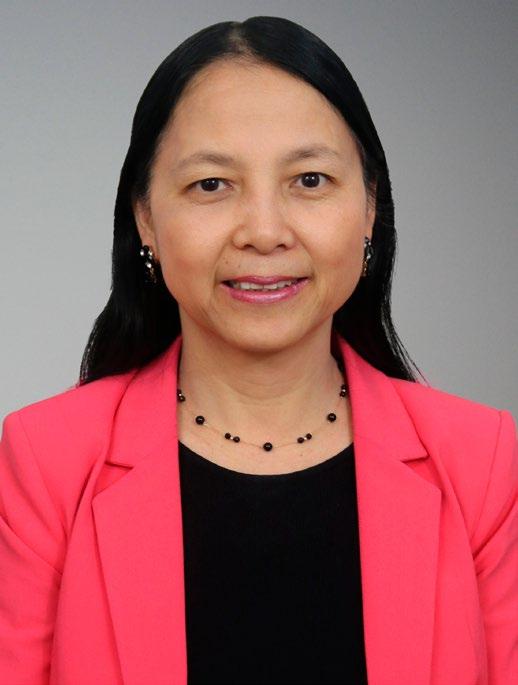
2 minute read
Atmospheric Modeling to Improve Air Quality
FACULTY SPOTLIGHT: Yang Zhang, professor, civil and environmental engineering
BY DAVID DEETER
Globally, air quality impacts all aspects of life, from public health to the economy. Professor Yang Zhang, who joined Northeastern University’s Department of Civil and Environmental Engineering in 2020 as a Distinguished Fellow, researches atmospheric/climate modeling and air quality forecasting. She brings years of leadership in this important field to a growing and diverse range of environmental engineering expertise within the department.
Zhang’s recent research, funded by the National Science Foundation and the United States Department of Agriculture, revealed an estimated $1 billion a year shortfall in U.S. perennial crop yields due to ozone pollution, and has estimated over 63,000 saved lives and over $500 billion saved costs through reducing surface fine particle levels by a few μg m-3. Additionally, a 2020 paper published in the journal Nature Climate Change by Zhang and collaborators identified how policy changes towards pollutants in China could save upwards of 13,000 lives a year.
Understanding, monitoring, and forecasting air quality require complex tools and massive computing power. Over her career, Zhang has served at the forefront of the endeavor to understand the atmosphere and has contributed to the development of many of the now essential techniques and modeling practices used frequently within the field. Commissioned by the UN’s World Meteorological Organization (WMO), in 2020 Zhang published a training book titled, “Training Materials and Best Practices for Chemical Weather/Air Quality Forecasting.” As a member of the WMO's Global Air Quality Forecasting and Information System Initiative (GAFIS), she is co-leading WMO’s effort in capacity building for air quality forecasting and information systems which includes skill training, scientific advancement, and transformation of research to operations.
Zhang is looking to further move our understanding of atmospheric chemistry and air quality. From her Clean Air, Smart City, And Digital Earth (CASCADE) Lab on Northeastern’s Boston campus, she is charting the next frontier of air quality monitoring and forecasting at hyperlocal scales such as at home, in buildings, and on streets.
“Traditionally, air quality monitoring and modeling are done at the regional and urban scale or larger,” explains Zhang. But she envisions a new transdisciplinary system in which we develop the tools to monitor the quality of the air we breathe at critical points throughout a city.
“Air quality can vary greatly even over relatively small distances,” says Zhang. “The quality of air on the sidewalk outside a building can be quite different from that measured at a window a few stories above.”
Such a surveillance system could help policymakers design cleaner cities and help public health officials better understand the effects of exposure to polluted air on longterm health outcomes at hyperlocal scales.
Her plans pair well with the department’s focus on Urban Engineering, whereby legacy approaches to civil and environmental engineering are enhanced by new strategies and solutions for larger-scale urban growth, renewal, health, resilience, and sustainability.









